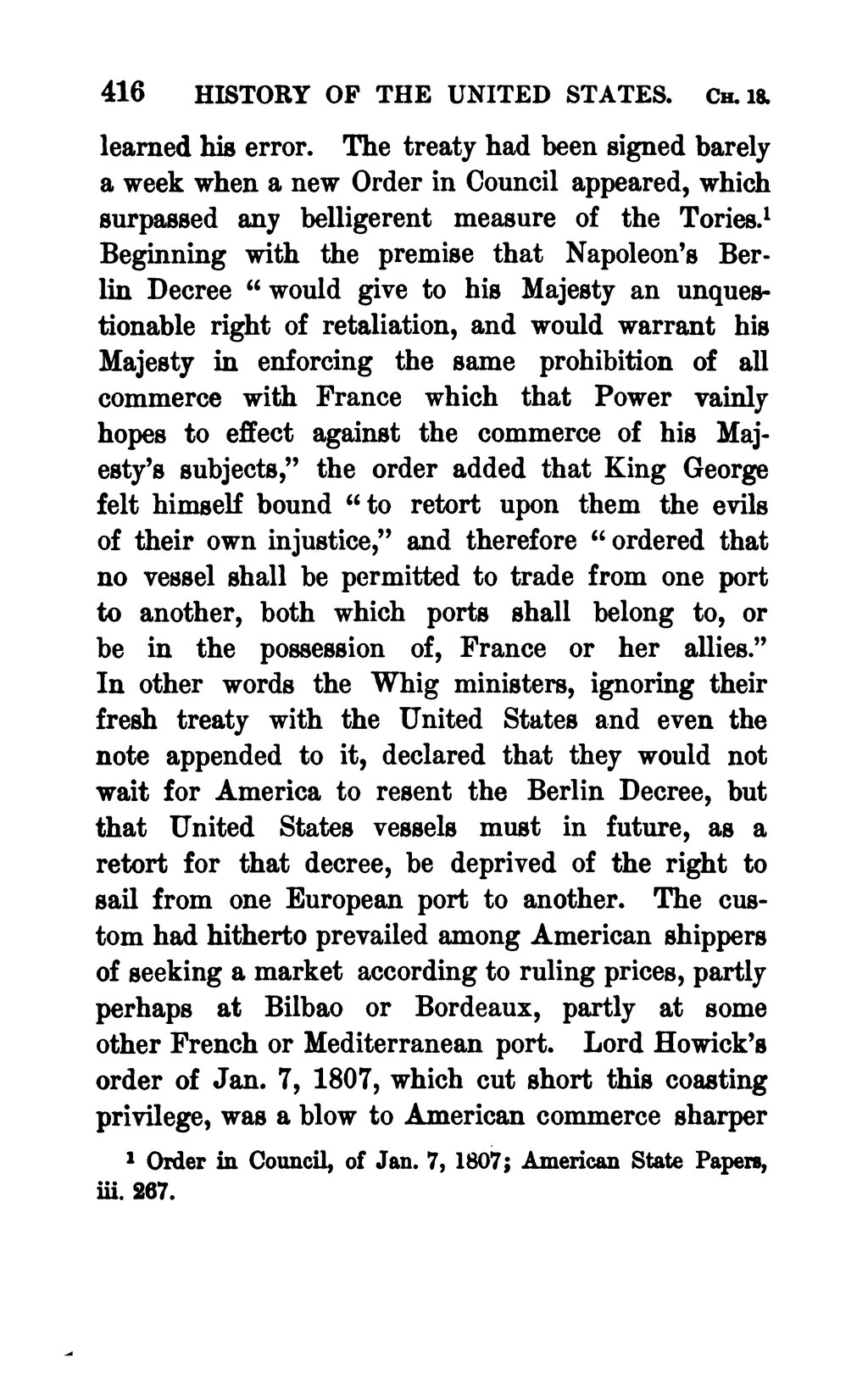learned his error. The treaty had been signed barely a week when a new Order in Council appeared, which surpassed any belligerent measure of the Tories.[1] Beginning with the premise that Napoleon's Berlin Decree "would give to his Majesty an unquestionable right of retaliation, and would warrant his Majesty in enforcing the same prohibition of all commerce with France which that Power vainly hopes to effect against the commerce of his Majesty's subjects," the order added that King George felt himself bound "to retort upon them the evils of their own injustice," and therefore "ordered that no vessel shall be permitted to trade from one port to another, both which ports shall belong to, or be in the possession of, France or her allies." In other words the Whig ministers, ignoring their fresh treaty with the United States and even the note appended to it, declared that they would not wait for America to resent the Berlin Decree, but that United States vessels must in future, as a retort for that decree, be deprived of the right to sail from one European port to another. The custom had hitherto prevailed among American shippers of seeking a market according to ruling prices, partly perhaps at Bilbao or Bordeaux, partly at some other French or Mediterranean port. Lord Howick's order of Jan. 7, 1807, which cut short this coasting privilege, was a blow to American commerce sharper
- ↑ Order in Council, of Jan. 7, 1807; American State Papers, iii. 267.
